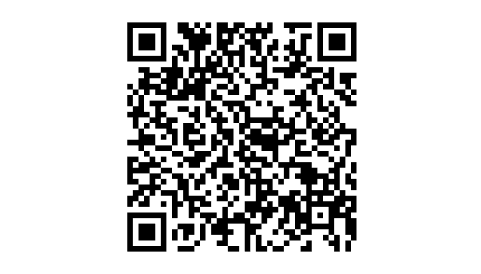NST
NSTについて
当院では、すべての患者さんが適切な栄養療法を受けられるよう、「栄養サポートチーム(NST:Nutrition Support Team)」を設置しています。
NSTは、医師、看護師、管理栄養士、薬剤師、臨床検査技師、理学療法士、言語聴覚士など、多職種で構成されるチームです。栄養に関する専門的な知識と視点をもとに、患者さん一人ひとりの病態や治療状況に応じた最適な栄養療法を提案・支援しています。
「栄養」は健康状態の回復を支える重要な要素です。適切な栄養療法は、治療効果の向上、合併症の予防、早期回復に大きく貢献します。NSTは、すべての患者さんに質の高い医療を安全に提供できるよう、チーム医療の一翼を担っています。
NST Chairman 伊藤次郎
活動内容
NSTはこんな活動をしています
コンサルテーション業務
病棟の医師や看護師からの依頼に応じて、患者さんの栄養状態や病態を多職種で評価し、栄養に関する問題点とその対策についてカンファレンスを行います。医師、看護師、薬剤師、管理栄養士などが専門的な視点を持ち寄り、経口・経腸・静脈栄養を含む最適な栄養療法を提案します。また、NSTメンバーが実際に病室を訪問し、食事摂取状況や身体所見を確認しながら、患者さんの生活背景や食の好み、価値観もふまえた個別性の高い栄養支援を行っています。栄養管理の目的や方法についても、ご本人やご家族にわかりやすく説明し、不安や疑問に丁寧に対応することで、納得と安心の得られる療養環境づくりを目指しています。
TPNサーベイランス業務
中心静脈栄養(TPN:Total Parenteral Nutrition)は、重症患者さんや消化管機能が著しく低下した患者さんに対して、点滴で栄養を補う栄養療法の一種です。一方で、感染症や代謝異常などの合併症リスクもあるため、細やかな管理が求められます。当院ではNSTがTPNの処方内容や投与状況、合併症リスクなどを定期的に確認し、必要に応じて主治医にフィードバックを行うことで、適正使用と安全性の向上に努めています。
NSTサテライトチーム活動
NST本体とは別に、各診療科・病棟に所属する医師、看護師、管理栄養士を中心に構成される「NSTサテライトチーム」を設けています。サテライトチームは、各現場での栄養管理の実践を支え、患者さんに対する日常的な評価や課題抽出を担っています。NST本体と連携しながら、病棟単位でも継続的かつ実効性のある栄養支援体制を構築しています。
院内教育
栄養療法の質の向上を目的に、院内スタッフに向けた教育活動を積極的に行っています。全職種を対象とした毎月の勉強会やケースカンファレンスを開催し、最新の栄養管理の知識や実践的な対応法を共有しています。また、新入職員研修や部署ごとのニーズに応じたカスタム型の教育支援も実施しており、現場での実践力向上につなげています。NSTの知識が各部署に浸透することで、日常診療の中でもより早期から適切な栄養介入が行える体制づくりを目指しています。
栄養プロトコルの策定と運用
すべての患者さんに質の高い栄養療法を安全に提供することを目的に、エビデンスに基づいた各種栄養プロトコルの策定と運用を行っています。プロトコルには、経腸栄養や中心静脈栄養(TPN)の適正使用、さらには便秘・下痢といった消化器症状への対応指針などが含まれており、全病棟で標準的な栄養療法が実施できるように取り組んでいます。
NST構成
私たちが当院のNSTメンバーです
| 氏 名 | 部署 役職 | 栄養関連認定資格 | |
| Supervisor | 橋田 亨 西岡 弘晶 室井 延之 |
院長補佐 総合内科 部長 薬剤部 部長 |
|
| Chairman | 伊藤 次郎 | 麻酔科 副医長 | TNT(J)、NST認定医 |
| Nursing Director | 松尾 幸恵 | 看護部 主幹 | |
| Director | 尾鼻 俊弥 尾松 雅仁 土肥 麻貴子 池田 理沙 |
栄養管理部 主査 臨床検査技術部 主査 薬剤部 主査 看護部 主任 |
NST専門療法士(J) NST専門療法士(J) NST専門療法士(J) NST専門療法士(J) |
| Assistant Director | 石井 淳子 | 神経内科 医長 | TNT(J) |
| Staff | 桂 欣宏 南井 崇宏 吉川 健太郎 森川 真衣 西山 恵梨香 西畑 佐江子 |
麻酔科 医師 総合内科 医師 小児科 医師 看護部 看護部 看護部 |
TNT(J) TNT(J) TNT(J) NST専門療法士(J) NST専門療法士(J) NST専門療法士(J) |
| 岩本 昌子 橋間 那緒子 |
栄養管理部 副部長 栄養管理部 |
NST専門療法士(J) NST専門療法士(J) |
|
| 楠田 かおり 藤田 和美 有吉 紗絵 室井 宏仁 大音 竜哉 |
薬剤部 薬剤部 薬剤部 薬剤部 薬剤部 |
NST専門療法士(J) NST専門療法士(J) NST専門療法士(J) |
|
| 大山 幸永 矢野 由希子 岸中 日幸 |
臨床検査部技術部 臨床検査部技術部 臨床検査部技術部 |
||
| 小松 寛 髙村 大祐 |
リハビリテーション技術部 主任 リハビリテーション技術部 |
NST専門療法士(J) |
|
| 竹村 友花 | 総務部 |
TNT(J):Total nutritional therapy (JSPEN=日本静脈経腸栄養学会認定資格)
栄養サポートチーム専門療法士(J):日本静脈経腸栄養学会認定資格
NST専門療法士
NST専門療法士について
NST専門療法士は、日本栄養治療学会(JSPEN)が認定する資格で、NSTの一員として、専門的かつ実践的な栄養管理を担う多職種の医療従事者に与えられます。管理栄養士、看護師、薬剤師、臨床検査技師、言語聴覚士、理学療法士、作業療法士、歯科衛生士、診療放射線技師のいずれかの国家資格取得者が対象で、所定の研修受講や実地経験、筆記試験などを経て認定されます。単なる知識の習得にとどまらず、臨床現場での多職種連携能力や栄養療法の実践力が問われる資格であり、NST活動の質の担保と標準化を図る上でも重要な役割を果たしています。当院でもNST専門療法士が中心となり、日々のコンサルテーション、プロトコル運用、教育活動などに積極的に関わっています。
NST専門療法士認定資格制度の詳細はこちら神戸大学エキスパートメディカルスタッフ育成プログラム 栄養療法コースのご案内
本コースは、神戸大学大学院医学研究科、保健学研究科および医学部附属病院と兵庫県の連携により、NST専門療法士の育成を目的として実施される教育プログラムです。NST専門療法士認定試験の受験予定者を対象に、申請要件のひとつである「JSPEN認定教育施設における40時間の実地修練」を以下の2部構成で行います。
- 神戸大学医学部附属病院での合同研修プログラム(16時間)
- 兵庫県内のNST認定教育施設での実地修練(24時間)
NST専門療法士認定試験の受験をお考えの方は、ぜひ本プログラムへの参加をご検討ください。
栄養医療コース「兵庫NST合同研修プログラム」の募集要項はこちら
